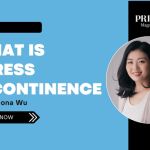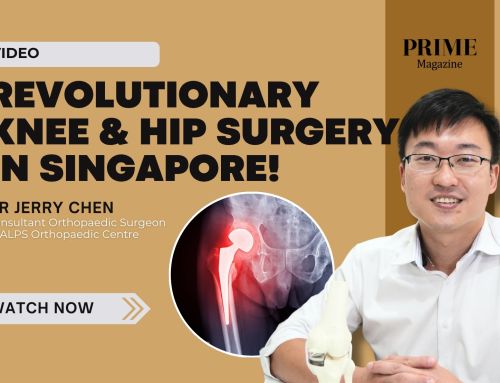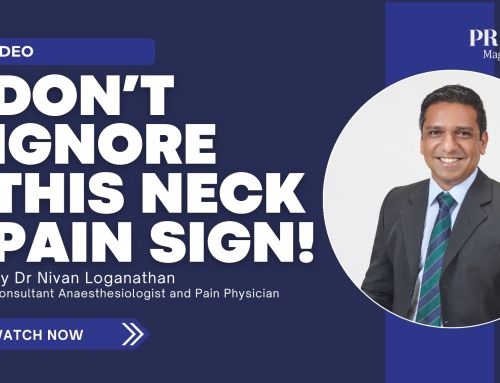Do Glasses Weaken Your Eyes? Common Eye Health Myths Explained by Dr Khor Wei Boon
Eye Health Myths Singapore: Facts About Glasses, Vision and Eye Care
If you’ve ever searched for eye health myths Singapore, you’ve probably come across advice like “wearing glasses weakens your eyes” or “looking at greenery improves vision.” These ideas are common in everyday conversations, but are they true?
In this article, Dr Khor Wei Boon, Senior Consultant Ophthalmologist at Singapore Eye & Vision Clinic (Paragon), explains the facts behind some of the most widely believed myths. With his expertise in cataract surgery, refractive surgery (LASIK, SMILE), corneal transplantation and myopia prevention, Dr Khor shares practical tips on maintaining clear and healthy vision.
Eye Health Myths Singapore — What’s True and What’s Not
Let’s look at four common myths that patients in Singapore often ask about.
Myth 1: Do Glasses Make Your Eyesight Worse?
One of the most common eye health myths in Singapore is the belief that wearing glasses will make your eyesight deteriorate. Parents sometimes delay giving their children glasses, worrying that once they start, their vision will get weaker.
The truth: Glasses do not weaken your eyes. They simply correct blurry vision caused by refractive errors like myopia, hyperopia, or astigmatism. Without glasses, your eyes continue to strain, which can cause headaches and fatigue. Wearing glasses allows your eyes to relax and helps you see clearly — it does not make your eyesight worse.
What actually worsens eyesight is often genetics and lifestyle factors, especially in children who spend long hours on near work or digital screens. In Singapore, where myopia rates are among the highest in the world, proper myopia control (including glasses or contact lenses when needed) is crucial.
Myth 2: Should You Wash Your Eyes Regularly?
Another common eye care myth is that you should wash your eyes with water every day to keep them healthy. Some even believe rinsing with tap water prevents infections.
The truth: Your eyes are naturally protected by tears and a delicate tear film, which contains antibodies and nutrients. Washing your eyes with plain water may disrupt this natural balance, making your eyes more irritated. Worse, tap water may contain bacteria or other microorganisms that could increase your risk of infection.
Instead of washing your eyes, the best way to maintain comfort is to:
-
Use lubricating eye drops if your eyes feel dry.
-
Practice the 20-20-20 rule (take a 20-second break to look 20 feet away every 20 minutes) to reduce digital eye strain.
-
Seek medical advice if you experience persistent irritation, redness, or discharge.
Myth 3: Can Looking at Greenery Improve Vision?
Many Singaporeans grow up hearing advice like “look at trees or grass to rest your eyes.” This is partly based on the idea that green is a soothing colour. But does it really improve vision?
The truth: Looking at greenery does not directly improve eyesight. However, focusing on distant objects (such as trees, the horizon, or scenery) gives your eyes a break from near work. It reduces eye strain and helps relax the focusing muscles inside the eye.
So while the “green colour” itself does not cure myopia or restore vision, the practice of taking breaks outdoors is very beneficial. Spending at least 2 hours a day outdoors has been shown in studies to reduce the risk of myopia progression in children.
Myth 4: Does Being Short-Sighted Protect Against Presbyopia (老花)?
Presbyopia (老花) is the age-related difficulty in focusing on near objects, usually starting after age 40. A common myth in Singapore is that if you are short-sighted (myopic), you won’t develop presbyopia.
The truth: Everyone will eventually experience presbyopia, whether or not they are myopic. The difference is that a person with mild myopia may be able to remove their glasses and see near objects more clearly. This can create the impression that myopia “protects” against presbyopia.
In reality, presbyopia affects the lens inside the eye, which becomes less flexible with age. Myopia does not prevent this natural ageing process. Fortunately, there are many treatment options, including reading glasses, multifocal contact lenses, and surgical procedures.
Expert Insights from Dr Khor Wei Boon
Dr Khor Wei Boon is a highly respected ophthalmologist in Singapore with special interests in:
-
Cataract surgery (advanced lens implants)
-
Refractive surgery (LASIK, SMILE, PRK)
-
Corneal transplantation
-
Myopia prevention and control in children and adults
With years of experience treating patients, Dr Khor emphasises that while family advice is often well-intentioned, it is best to rely on evidence-based eye care. Understanding the truth behind eye health myths Singapore residents often hear can help prevent unnecessary worry and protect vision long term.
FAQs: Eye Health Myths Singapore
Q: Does wearing glasses all the time make your eyes dependent?
A: No. Glasses correct your vision but don’t change the structure of your eyes. They don’t cause dependency.
Q: Can eating carrots improve your eyesight?
A: Carrots contain vitamin A, which is important for eye health. But eating more than your daily needs will not improve vision.
Q: Is it safe to use over-the-counter eye drops every day?
A: Preservative-free lubricating drops are safe for regular use. Avoid long-term use of medicated drops unless prescribed.
Q: How often should I get an eye check-up in Singapore?
A: Adults should have an eye exam every 1–2 years, or more frequently if you have conditions like diabetes, glaucoma, or high myopia.
Conclusion: Protecting Your Eyes in Singapore
Eye health is an important part of overall well-being, yet many eye health myths in Singapore continue to circulate. Glasses do not weaken eyesight, greenery doesn’t cure vision problems, and presbyopia will affect everyone eventually. By separating myth from fact, you can take the right steps to protect your eyes.
For personalised advice, consult a qualified ophthalmologist in Singapore like Dr Khor Wei Boon. Professional guidance ensures you get accurate information and the best care for your vision.
🔑 Keywords
#EyeHealth #EyeCareTips #GlassesMyths #HealthyVision #OphthalmologistSingapore #Myopia #Presbyopia #VisionCare












Leave A Comment